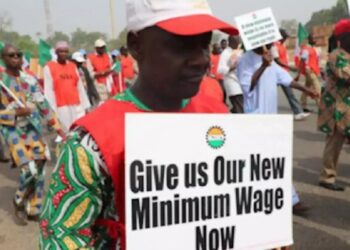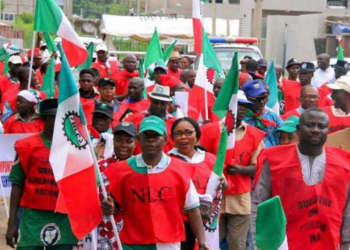In August 2018, the New York City Council passed a bill that mandated the Taxi and Limousine Commission to raise driver’s minimum pay to $17.2 per hour. By December, the rule was announced and upheld by a Judge in March 2019. The matter is still in court and whatever the outcome is could have a riveting effect across the world, including Nigeria.
Last April, Nigeria’s President Buhari signed into law the new minimum wage act that compels employers in the private and public sectors of the country to pay a minimum of N30,000 per month in wages. Nairametrics Research believes the new minimum wage could have an impact on the cost of riding a cab or bike on any of the ride-sharing apps in Nigeria.
Ride-sharing apps have been a major source of commuting in Nigeria since Uber debuted in the country about 4 years ago. The business model, which allows car owners to participate either as a side hustle or full-time business, relies on drivers to transport passengers (riders) in exchange for a salary/fees at the end of the month from trips.
The implication: Uber recently lost a case in the UK where it wanted to classify its drivers as self-employed. The implication is that the drivers could demand minimum wage in the computation of their fees. This model is not currently in operation in Nigeria as the regulations or law governing ride-sharing businesses are not clear. It is however not inconceivable that the government or labour could someday demand a higher share of amount riders pay. Nigeria’s minimum wage currently amounts to just under N30,000 ($85 per month) or N100 ($0.27) per hour assuming a 300-hour work spread per month.
A strong case: A 30km ride (from Ikoyi to the local airport) can cost anywhere between N2000 to N3000 using any of the ride-sharing apps in Nigeria. The same cost in the US is about N10,000. In the US for example, a 30 km ride (18.6 miles) will cost about $20.4 (N7, 300) assuming just $1.1 per mile (see how Uber fares are calculated). Ride-sharing apps like Uber also add to the cost per mile, the base cost, cost per minute and booking fee. So a ride that cost just N3,000 in Nigeria could cost as much as N15,000 in the US. Labour cost is understandably far cheaper in Nigeria than in most western societies however, there might be a call to bridge the disparity.
Past pressures: About two years ago, Uber drivers in Lagos protested about the slash in their earnings after the competing ride-sharing applications slashed their prices in a bidding war for market share. This year, they complained about the commissions that they are forced to pay to Uber. As far as Nigeria is concerned the competition is still stiff and it is likely that most of the ride-sharing apps are still running at a loss in favour of scale. Thus, there is no incentive to increase fares except there is an inertia to do so possible from the labour unions. This could continue if, for example, the drivers form a union and get affiliated to labour.
Look ahead: Ride Sharing companies should thus start to prepare themselves against an imminent need to raise drivers earnings in line with the new minimum wage. This current government is prone to regulatory onslaughts and could target any industry at any time. Smart business people prepare for threats before they show up and not when they arise.






















